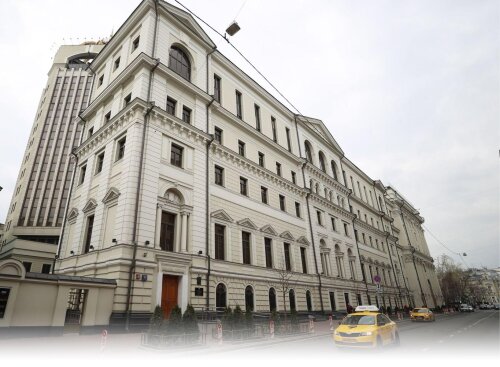Best Child Visitation Lawyers in Yekaterinburg
Share your needs with us, get contacted by law firms.
Free. Takes 2 min.
Free Guide to Hiring a Family Lawyer
List of the best lawyers in Yekaterinburg, Russia

About Child Visitation Law in Yekaterinburg, Russia
In Yekaterinburg, as in the rest of Russia, child visitation rights are a critical part of family law, which is governed by the Russian Family Code. Child visitation laws are intended to ensure that following a separation or divorce, children can maintain a healthy relationship with both parents. Russian law emphasizes the importance of both parents being involved in the upbringing of their children, except in cases where a parent's involvement might be detrimental to the child's well-being. Visitation rights are typically settled as part of the divorce proceedings, and the local courts in Yekaterinburg have the authority to enforce these agreements.
Why You May Need a Lawyer
Legal assistance might be needed in a variety of situations related to child visitation. Common scenarios include negotiating visitation terms during divorce proceedings, altering existing visitation arrangements, resolving disputes over visitation rights, or dealing with non-compliance by the other parent. Furthermore, if a parent's circumstances change significantly, or if the child's best interests are not being served under current arrangements, a lawyer may be required to guide one through the legal process of amending the visitation agreement.
Local Laws Overview
The key aspects of local laws that govern child visitation in Yekaterinburg, under the Russian Family Code, include the following:
- Child visitation rights should be focused primarily on the best interests and needs of the child.
- Parents have equal rights in terms of visitation irrespective of who has been granted custody.
- Visitation schedules and conditions should be agreed upon by parents, but if consensus cannot be reached, the court will determine an arrangement.
- In cases where a parent's visitation might harm the child's physical or psychological health, the court may restrict, supervise, or deny visitation rights.
- Legal modifications to visitation rights can be pursued if a parent or the child's living conditions change substantially.
Frequently Asked Questions
1. What is the usual process for setting up a visitation schedule?
Typically, parents agree on a visitation schedule, which is then formalized in their divorce decree; if parents cannot agree, the court will intervene to set a schedule based on the child's best interests.
2. Can a non-custodial parent be denied visitation rights?
Yes, if the court determines that visitation with the non-custodial parent is not in the child's best interest, usually due to concerns about the child's safety or well-being.
3. What can I do if the other parent violates our visitation agreement?
If the visitation agreement, which is part of the court order, is violated, you may need to file a formal complaint with the court to enforce the agreement.
4. Are grandparents entitled to visitation rights in Yekaterinburg?
Under Russian law, close relatives such as grandparents can obtain visitation rights if it is in the child's best interests, but these are not automatic and must be determined by the court.
5. How can I change an existing visitation agreement?
To alter an existing visitation arrangement, you must apply to the court with evidence that shows a significant change in circumstances justifying the modification.
6. What does supervised visitation mean, and when is it applied?
Supervised visitation means that the non-custodial parent can only visit the child in the presence of another responsible adult or authorized personnel. It is often used if there's a risk of harm to the child.
7. Can I take my child on vacation during my designated visitation time?
Yes, as long as it does not interfere with the other parent's visitation rights and complies with any stipulations in the custody order.
8. What should I do if I believe my child is in danger during visitation with the other parent?
Contact your lawyer immediately and, if there is an imminent threat to your child's safety, local authorities. You may need to request a court order to protect your child.
9. How are visitation rights affected if one parent moves to a different city or country?
If a custodial parent plans to move, they must notify the non-custodial parent; the court may adjust visitation rights to reflect the new distance and circumstances.
10. Can visitation rights be changed if my financial situation changes?
Visitation rights are generally not based on financial status. However, if financial changes affect your ability to provide a stable environment during visits, it may be grounds to review the arrangement.
Additional Resources
Individuals seeking legal advice in child visitation matters in Yekaterinburg can contact:
- The local Family Affairs department.
- Nonprofit organizations dedicated to family law and children's rights.
- Local legal aid services for those who qualify for assistance.
Next Steps
If you need legal assistance with child visitation rights in Yekaterinburg, your first step should be to consult a lawyer specialized in family law. An experienced attorney can help you understand your rights, navigate the legal system, and advocate for the best interests of your child. Additionally, they can assist in drafting legal documents, negotiating visitation arrangements, and representing you in court if necessary.
Lawzana helps you find the best lawyers and law firms in Yekaterinburg through a curated and pre-screened list of qualified legal professionals. Our platform offers rankings and detailed profiles of attorneys and law firms, allowing you to compare based on practice areas, including Child Visitation, experience, and client feedback.
Each profile includes a description of the firm's areas of practice, client reviews, team members and partners, year of establishment, spoken languages, office locations, contact information, social media presence, and any published articles or resources. Most firms on our platform speak English and are experienced in both local and international legal matters.
Get a quote from top-rated law firms in Yekaterinburg, Russia — quickly, securely, and without unnecessary hassle.
Disclaimer:
The information provided on this page is for general informational purposes only and does not constitute legal advice. While we strive to ensure the accuracy and relevance of the content, legal information may change over time, and interpretations of the law can vary. You should always consult with a qualified legal professional for advice specific to your situation.
We disclaim all liability for actions taken or not taken based on the content of this page. If you believe any information is incorrect or outdated, please contact us, and we will review and update it where appropriate.










